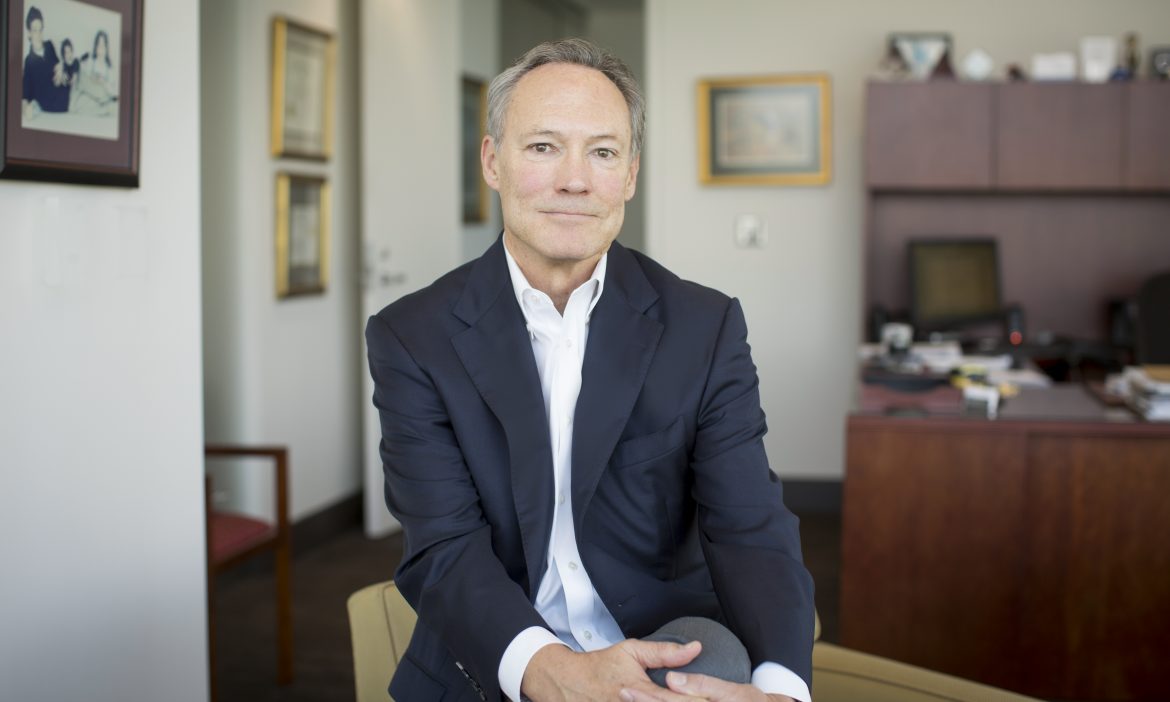As a mission-driven company, our BlueCross culture is rooted in doing what is right – for our employees, customers, members and communities. That includes planning for challenging circumstances, and our company has been monitoring developments of COVID-19 and preparing to support Tennesseans since the virus entered the United States in January.
As part of that preparation, BlueCross Executive Vice President and Chief Financial Officer John Giblin and his team built a financial roadmap to help guide our company and continue serving our members during this unsettling time. The plan anticipated economic challenges brought on by the coronavirus pandemic using John’s guiding principle: “hope for the best, but plan for the worst.”
We sat down with John, who was with BlueCross during the Great Recession (2007-2009), to learn more about the financial health of our company amid the COVID-19 outbreak, as well as how this public health and economic crisis has impacted our members and customers.
What has BlueCross done to ensure we remain strong during this COVID-19 pandemic?
John: We’ve been building our financial reserves over the last 75 years, and that’s the most important thing we’ve done to help navigate our way through this crisis. Our 3.5 million members want and expect us to perform well operationally and financially. They want to know we have the financial means to cover health care claims regardless of the economy’s ups and downs. We are required to hold around $2 billion in reserves, and we have another $1 billion above those minimum levels, so we came into this pandemic-turned-economic crisis prepared.
What is the BlueCross financial plan for public health emergencies?
John: As part of our contingency planning, we made certain long ago that we had a blueprint in our investment policy that governs how we manage our financial assets and ensure needed liquidity in a crisis situation. As soon as it became evident we were in an unprecedented national health and financial crisis, we used that blueprint to build up the cash reserves we would need to sustain our operations.
Because, we knew that:
- We were going to need cash to fund our operations.
- We needed to be there for our groups and members to pay their claims.
- Our provider partners would rely on our financial strength to pay their bills as quickly as possible.
We now have close to a billion dollars in cash as a cushion to carry us through however long this crisis may last.
How are we supporting our customers and members?
John: Our customers are the lifeblood of the Tennessee economy – and we’re doing everything we can to help them and our members get through this difficult time.
We’ve offered enhanced customer and member support in recent weeks including:
- Extending premium payments on request.
- Waiving all member cost-sharing for COVID-19 treatments, including hospitalizations, from in-network providers through May 31, 2020.
- Waiving member costs for any medically appropriate FDA-aligned COVID-19 test.
- Allowing early prescription refills and 90-day prescriptions to avoid increased risk of exposure.
- Expanding access to telehealth services by making PhysicianNow® visits available at no cost and by covering virtual visits with network providers.
- Sharing key public health information, such as promoting social distancing and warning of potential scam activity.
The BlueCross Foundation donated $3.25 million to food banks across the state to meet increased needs related to the COVID-19 pandemic. We’ve also made donations of personal protective equipment (PPE) to some Tennessee health systems.
What can you say about the struggles our employer customers are facing, and how we’re handling them?
John: It’s tough. We have to balance our business needs with a sense of empathy for our group customers and individual members who are dealing with this crisis, too.
The biggest risk for us is the loss of revenue from our customers who no longer have the cash flow to pay our premiums. We hope that the Coronavirus Aid, Relief and Economic Security, or CARES Act will start to flow to our customers. Small and large business owners can access these funds through this package, which provides potentially forgivable loans that they can use to cover their operating expenses, including health insurance coverage.
What can we say to our provider partners who may look to us for support?
John: Our first priority is to our customers and our members. That’s the reason BlueCross exists.
We do empathize with our provider partners. They’re projecting reduced cash flow as a result of not performing elective procedures. We want to be there for our provider network, so we’re paying claims as fast as we ever have and have suspended recovery and recoupment activities until mid-May.
Our teams also are actively exploring how else we can streamline, suspend or relax our clinical and administrative policies to help relieve pressure when the anticipated COVID-19 inpatient capacity becomes strained.
Through the CARES Act, there were billions of dollars allocated for hospitals and other providers in the emergency legislation. We strongly support the swift distribution of those funds. Additionally, we’re in communication with state and federal officials to find solutions for struggling businesses and individuals.
Finally, we’re working with our employer group customers to extend payment terms on request. If one of our customers is struggling to make payments, they can call us and we’ll offer an extended grace period to make their premium payments.
BlueCross continues to maintain normal hours of operation and service levels for its members and network providers as a result of shifting virtually all of its almost 6,800 employees across the state to work from home last month.


 Dalya leads a team responsible for marketing, communication and community relations strategies that reflect the mission-driven culture of BlueCross. She has more than a decade's experience as a communications leader in health care, government services and sports information.
Dalya leads a team responsible for marketing, communication and community relations strategies that reflect the mission-driven culture of BlueCross. She has more than a decade's experience as a communications leader in health care, government services and sports information.